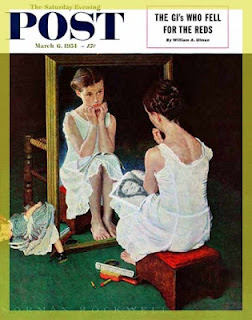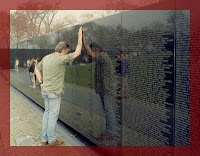I grew up during the time of
seasons. I suspect that children today don't have a clue about the major
and minor seasons that were an integral part of my childhood.
The major seasons were football and baseball - we didn't consider
basketball a major season, though we did spend some time every week playing
Horse, unless we were caught up in a minor season.
The minor seasons were marbles, yo yo's, rubber guns, and soap box
cars. For clarification purposes, you need to know that a
rubber gun was a homemade weapon that fired rubber strips cut from an
automobile inner tube, and our version of soap box racing had little
resemblance to today's soap box racers that compete at Akron, Ohio. All
we needed to build a soap box racer was three pieces of wood and four wheels
and axles, and a rope for steering.
When Little League Baseball came to my home town, we were excited
for a couple of reasons. The first reason was new baseballs. Most of
us had never seen one, much less played with them. The second, and almost
as exciting as new baseballs, was uniforms. The logistics of bringing
Little League Baseball to our town weren't an issue for us until the day teams
were chosen.
We had exactly enough players for the objective twelve teams.
And wonder of wonders, we had twelve sponsors and twelve big boxes of
uniforms. Then we came up a bit short. We had only eleven coaches
and eleven assistant coaches. The leaders of the organization walked around
the pitchers mound and spoke in low voices for a while. Finally a spokesperson approached us and said, "We have a small problem, but we aren't
going to let that stop us. We going to go ahead and choose teams.
Hit the field boys."
The choosing up process lasted about an hour. Eleven coaches
and their assistants took turns picking players. When it was done each of
the eleven coaches had twelve players and there were twelve of us left on the
field, the ones who weren't chosen in the first twelve rounds. I looked
at my fellow team mates and realized that we were far from the best, with the
exception of Mike Braswell, who was one of the best pitchers in town, but who
was saddled with a father who could rival any of today's Little League manic
parents, which explained his presence with the unchosen.
Before we left the field that first day, we were issued uniforms
by the old man who was heading up the organization of the town's first Little
League Baseball season. He told us when to be back for our first
practice, then he added, "Now don't worry about a thing. You'll have
a coach when you come to back to your first practice."
A few of us met Sunday afternoon and talked about our team
prospects and speculated on who our coach and assistant coach would be.
We didn't have a clue, but we were sure that it wasn't a good sign.
Monday, after school, I walked to the designated practice field.
The man who had assured us we would have a coach was the only adult
present. He called us all to the center of the field. When he had
our attention he smiled and said, "Your coach is on the way and," he
paused, looked at his watch, raised his head, smiled again, and continued,
"and there he is."
My friend, Georgie Gilbert turned around and then exclaimed, "It's
your Daddy!"
I pivoted toward the parking lot just in time to see Daddy jump
out of our car, yanking his tie off as he slammed the door. He waved and
jogged toward us, pulling on his old baseball cap as he came. I saw his
old Carl Furillo glove under his right arm and I knew everything was going to
be Okay. And it was.
Now, I don't mean to imply that we won a lot of games. As a
matter of fact, we only won one regular season game, and that was by forfeit,
when the other team showed up without enough players. As a group, we
weren't great, but the reason was lost games was Daddy's decision to let
everyone play in every game.
That didn't make Daddy popular with all the parents, especially
Mike Braswell's father. In fact, Mr. Braswell became so vocal on one
occasion when Daddy replaced his son with another player, that the umpire
called timeout while Daddy left the bench, went into the stands, and talked to
Mr. Braswell, who turned a number of shocking shades of red and then took Mike
and left the field.
Regardless, we all loved to play in each game and nothing changed
that practice until the regular season ended and the playoffs began.
At a coaches' meeting it was decided that every team would play in
the playoffs, regardless of their record. Before our first playoff game' Daddy gathered us all together in right field, near the fence where he
wouldn't be overheard by the other parents or coaches. He said,
"Boys, we've had a lot of fun this season, haven't we?"
We shouted yes, and he smiled and then continued. "You
all know that we are a better team than our record indicates. I figured
it was more important for everyone to play than to win every game."
Someone shouted, "So we didn't win any games."
Daddy laughed and then said, "That's right, we didn't.
But that can change right now, if you want to win. If you decide
that you do, not all of you will play every game. So, you decide what you
want to do..."
Without meaning to, I shouted,
"Win." Immediately all my teammates joined in the
chant, "Win, win, win!"
I was a pitcher and back-up center fielder. I didn't play in
the first game of the playoffs. Mike pitched every inning, and we won 9 to
2. We were all elated, and Daddy took us to the Dairy Queen for
celebration ice cream.
Since Mike pitched the entire game, the rules said he couldn't
start the next game. I started that game and kept us in it for two
innings. Mike started the third inning and went all the way from there.
We won that one by seven runs.
With Mike pitching, we won the third game, and I realized that our
fan base had grown by about two hundred percent. Since that time, I've
noticed that phenomena applies to most things in life.
We won the fourth game, but it was closer than any of the first
three. With only two undefeated teams left in the playoffs, we found
ourselves on the threshold of playing for the first ever league championship.
Before the championship game, Daddy gathered us in right field
again. "Boys," he said, "The last four games have been fun
but not as much fun as all the games we played before the playoffs
started." He paused, looked at each of us, and then continued.
"Two of you haven't played a single inning, and two more of you have
only played two innings each." He paused a final time, letting his
words sink in, then said, "We can win today and we'll be champions.
Or we can all play and have some fun. I'd like for everyone to
play. What would you like?"
Georgie, who hadn't played a single inning, stood silently staring
at the ground. In fact, it was a long time before anyone said a word.
Finally Mike Braswell said, "Coach, let us all play."
Daddy smiled at him as he said, "Good idea, Mike. Let's
do that."
We all played, and we were beaten by three runs, on the score board, but we won in our hearts where it matters.
Daddy was promoted a couple of months later and his new job took
all of his extra time, so we had a new coach, and even an assistant coach, the
following year. None of that mattered to us. We'd had our
championship season.
Choosing Up was Number six in my Norman Rockwell blog series.
Tomorrow's blog is called Age of Romance. Here's the Rockwell
painting I'll use to illustrate the post.
























